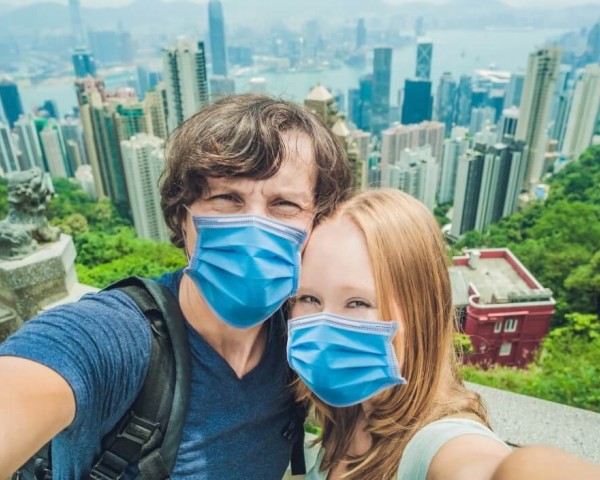Hong Kong has lost its status as a “tourism hub” in Asia due to a drop in domestic visitors from mainland China and the degradation of its international image abroad. The territory has had its worst year for thirty years in 2020.
Hong Kong tourism faces a dramatic drop in arrivals due to the coronavirus pandemic reaching almost 94% compared to the previous year. In 2019, Hong Kong SAR had welcomed nearly 56 million international visitors. This figure included more than 43.5 million visitors from mainland China.
However, this figure marked a decline, as many tourists in 2019 had shunned the destination due to anti-government protests. In fact, Hong Kong tourism had actually reached an all-time high in 2018, with more than 65 million visitors. Of these, the long-haul markets generated more than two million travelers. Europe still accounted for more than 720,000 travelers.
According to provisional figures from the Hong Kong Tourist Board, the former British territory recorded 3.57 million arrivals last year. This is an all-time low over the last 30 years for what was the first international destination in Asia. Most of this result was achieved in January 2020, as the city closed its borders at the time of the Chinese New Year. The number of Europeans accounted for a third of the 330,000 long-haul visitors.
Hong Kong as a business tourism destination has virtually disappeared from the map. All MICE events and congresses have been effectively cancelled.
However, the HKTB tourist office has taken the initiative to set up an online platform for professionals. It connects companies interested in organizing MICE events in Hong Kong with local service providers. According to the HKTB, more than 500 companies from Hong Kong and the mainland plan to organize more than 1,300 meetings.
Moreover, due to the continuing epidemic, HKTB announced that the Chinese Lunar New Year promotions will be held in an “online + offline” format. To boost local retail and catering industry, the three-week “Fortunes at Home” campaign will be held on Feb. 8-26 over the Spring Festival, the Valentine’s Day and the Lantern Festival, featuring a creative Online Mart. It will offer over 100 products and delicacies, including specialized cuisine for Chinese Lunar New Year and food with festive elements. The HKTB earlier decided to cancel the night parade which was supposed to be held on the first day of the Chinese Lunar New Year due to the epidemic.
The prospects for any improvement in the short term are poor. Nearly 12 months after the first Covid cases were reported, the city is still virtually closed. Of all the borders, only three are open. These are the Hong Kong-Zhuhai-Macau Bridge, the Shenzhen Bay port and the airport.
The conditions of entry into the territory remain indeed excessively strict. Since the end of December, Hong Kong has imposed an additional week of quarantine for travelers arriving from abroad. That is 21 days in total. The three weeks of isolation must be spent in one of the 36 government-designated hotels.
Another factor may further slow down Hong Kong’s return as an international business destination. Many travelers fear China’s new security law. This law applies to anyone who poses a danger to the People’s Republic of China – a rather vague notion in its wording.
In a seminar organized by the Asia Pacific Travel Association PATA, analyst Haiyan Song of Hong Kong Polytechnic University was moderately optimistic. In his prognosis, he indicates that 2021 will still be difficult. Though he indicates that the recovery will be rapid in 2022 and 2023, thanks to the return of the Chinese travelers from the mainland.




